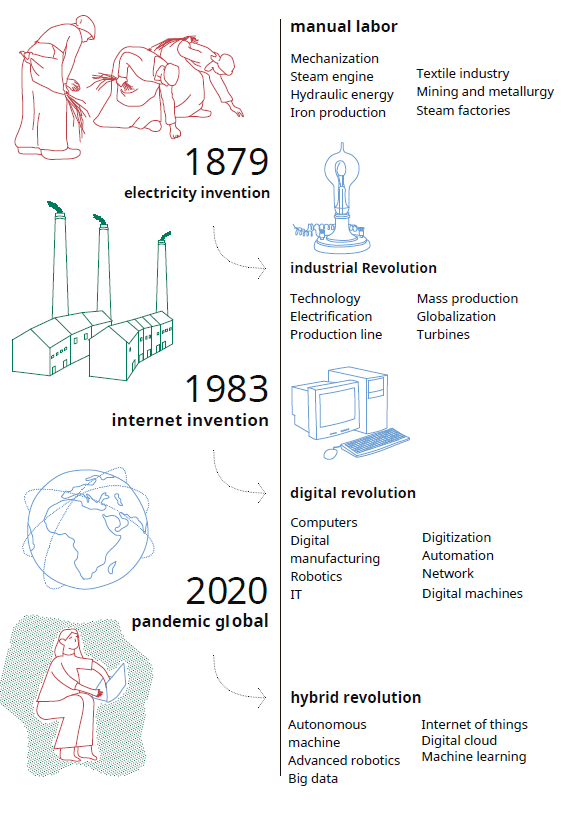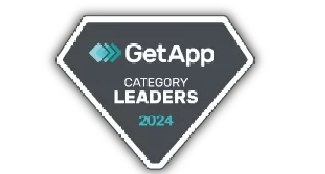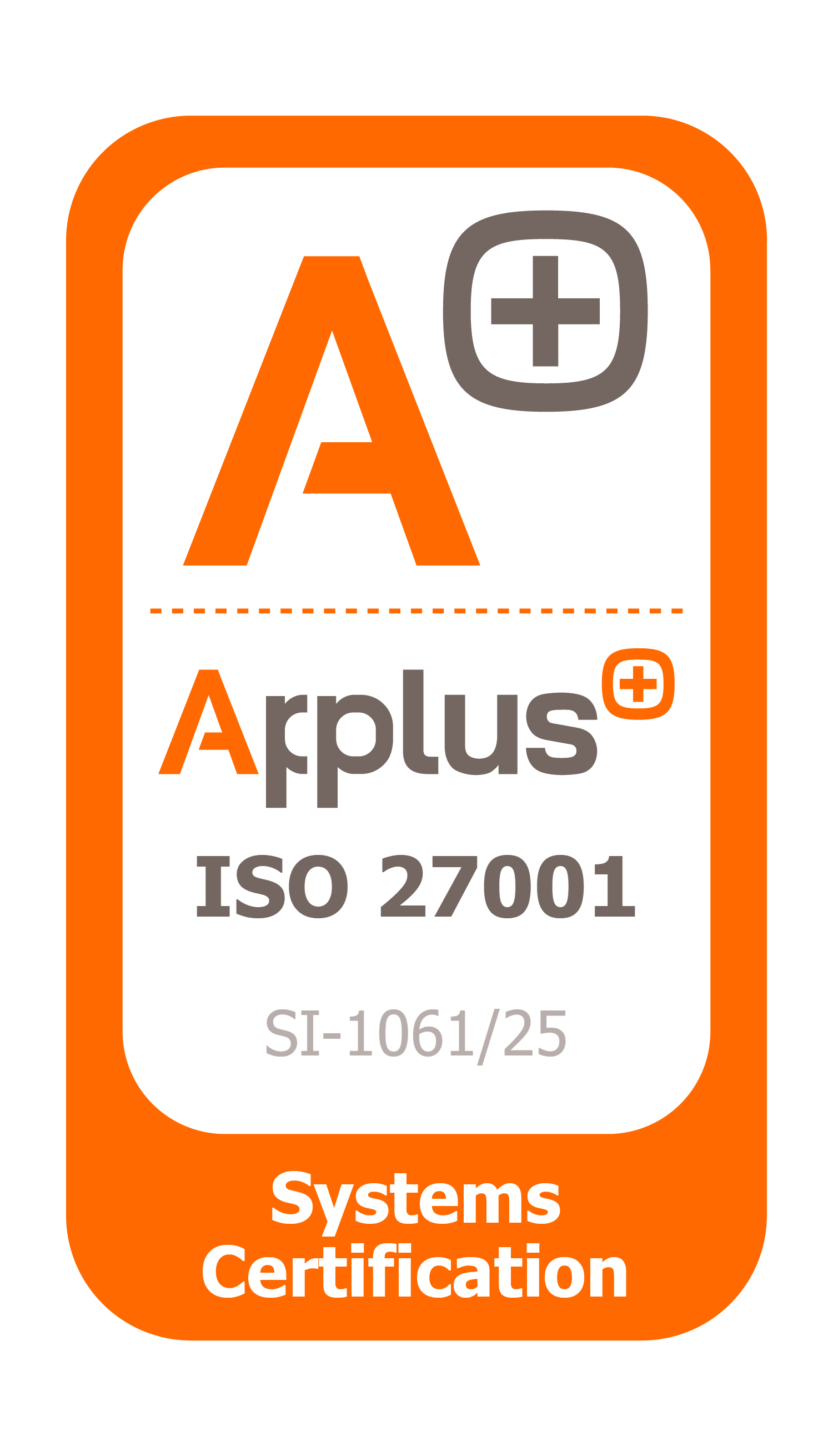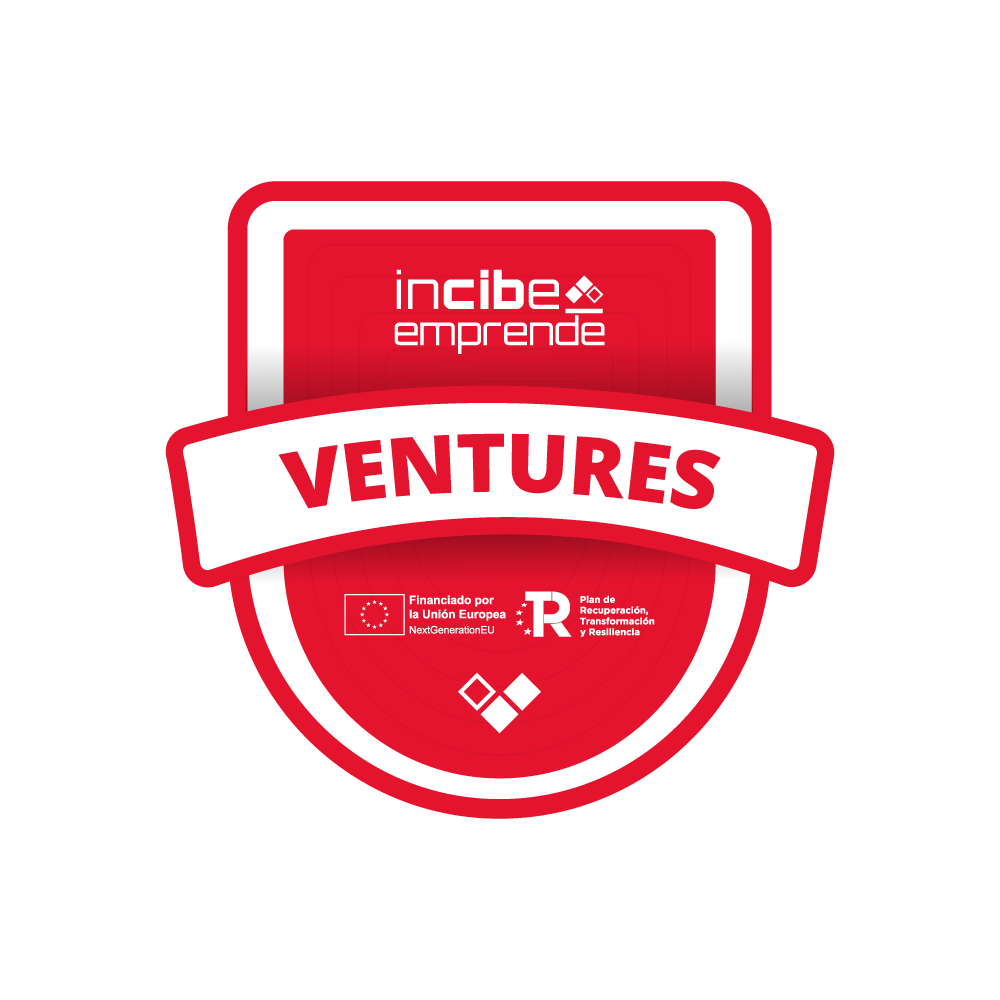What will the offices of the future look like?
Since the end of the age of manual
production, and with the mechanization of
production processes, each century has
been marked by a new event that has
transformed the way we understand work.
The first industrial revolution used water and steam to mechanize production processes. The second, with the invention of electricity, managed to create mass production. The third introduced electronics and information technology to automate production.
Now, a fourth revolution is being built on top of the third, a digital revolution that has been going on since the middle of the last century and has accelerated with the covid pandemic.
This new era is characterized by a fusion of technologies that blurs the lines between the physical, digital, and biological spheres: the hybrid revolution.
INDUSTRIAL EVOLUTION, 1879 – 2022
In recent years, the way of working has gradually tended to transition to a model that is not strictly face-toface – with the introduction of new technologies to support this transformation – but the Covid-19 pandemic has been an accelerating agent. ‘This process of change: It has made us question many of the conventions that we reproduce during our day to day, as well as the way we relate to work and spaces traditionally conceived as productive.
Despite the many benefits of working with digital tools, according to a study by the HowNow platform, a group of 3,000 people working in word, el 67% she felt detached from her co-workers, while the 49% he claimed that this disconnection had a negative impact on one’s perception of one’s work.
So, knowing that the workspaces of the future will be largely based on virtual communication, what should be the role of the office in this digital world? And how the physical space should be configured and virtual to encourage human interaction i the well-being of people sounds following a hybrid working model?
To get the most out of the hybrid work model, both the company and its employees must have tools that help and promote remote work, as well as spaces that respond to said model.
The rules and tools must be clear and available to everyone. Without a good manager like Hybo, implementing the hybrid work model can create a real nightmare for hiring managers and their employees.
Optimizing workspaces with blended work models is achieved by implementing:
· Booking of available desks for employees
· Booking of meeting rooms linked in the calendar
· Booking of dining room in shifts
· Booking of parking spaces on the map
· Management of incidents in equipment and facilities
· Management of visits with attached documentation
To implement workspace reservations, it is necessary to redraw the internal philosophy of the company by redesigning new internal processes:
Defining roles and routines so that the internal processes of the companies are not altered by the lack of distribution of tasks is extremely important. Each employee must be aware of his work and obligations.
Adapting corporate spaces for Hot Desking or Hybrid work is cheaper than you might think. And although it seems dissuasive, having a workspace suitable for the hybrid work model is much more profitable than any other reform.
Fostering a culture of cooperation and solidarity among employees will be crucial. Not only for the projects and tasks to be carried out remotely, but also for the management and assignment of the common space within the company.
It is essential to have a good cybersecurity system, remote work can only be implemented with the right tools and with data in the cloud. For this, it is vital to protect your company’s data traffic.
And finally flexibility. Not giving the flexibility of choice to the employee limits the advantages that implementing hybrid work will have on all of its employees. The main argument for implementation is the increase in management by the employee of his time, and, therefore, the increase in motivation towards his work.
Having software specialized in the hybrid model and integrated into large companies that use hybrid work on a daily basis is an argument for success. Hybo helps thousands of employees manage their time, their remote work and their common spaces.













